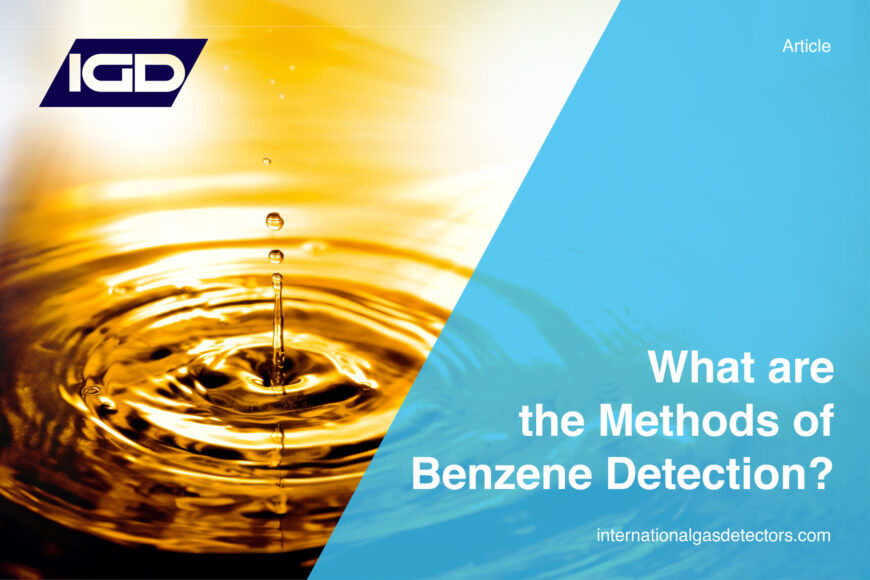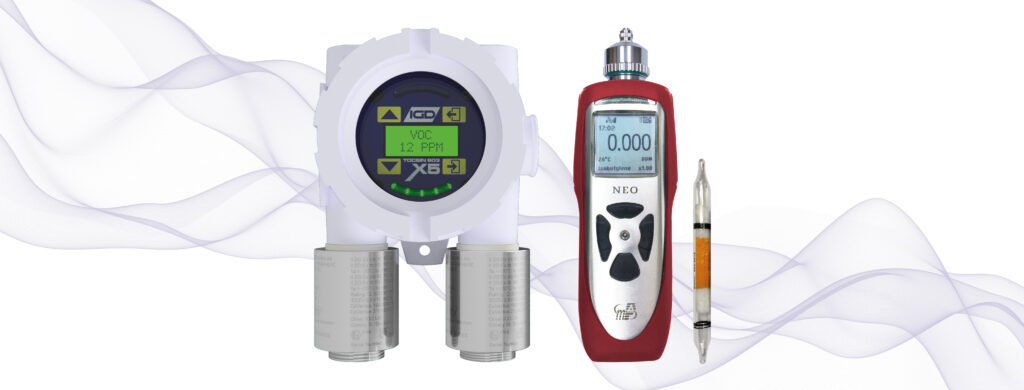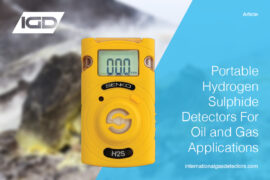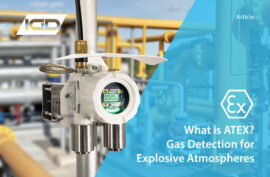Benzene is a colourless chemical with a sweet smell, making it extremely difficult to detect without specialist equipment. It is highly flammable and carcinogenic, and can evaporate into the air quickly, making it dangerous if not managed correctly. Benzene can be found in natural and human activities and is often present in crude oil, gasoline, and waste sites, and being able to detect it is of high importance. In this article, we will provide a brief overview of benzene detection methods and their benefits.
Why is Benzene Detection Important?
Because benzene is a colourless, highly flammable substance, it is difficult to detect and poses many risks to people and the wider environment. The World Health Organization (WHO) have stated that there are no safe levels of benzene1 due to the wide range of health effects it can have at low and high levels of exposure. Typical exposure to benzene is through inhalation, often found in areas with high levels of air pollution, cigarette smoke, and occupations involving petrol2.
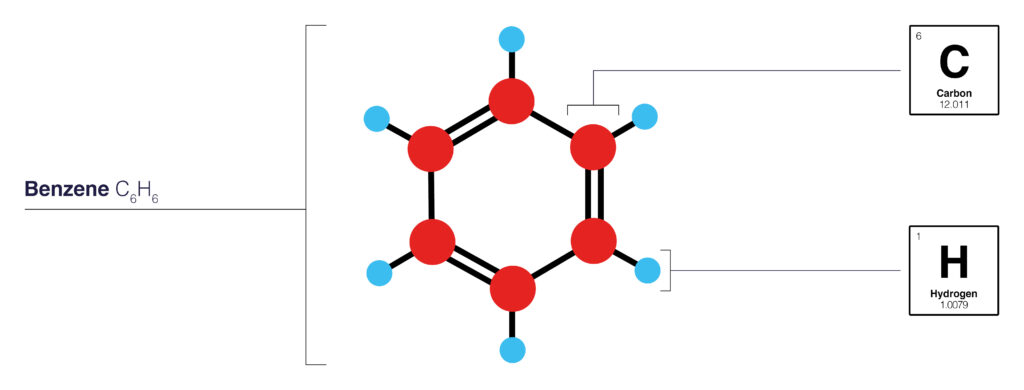
Some of the known risks of benzene exposure include the following:
- Dizziness
- Headaches
- Irritation of the eyes or skin
- Tremors
- Vomiting
However, in more severe cases, convulsions, fatalities and long term illnesses such as cancer could be possible3. A more comprehensive list can be found in our upcoming blog post, The Risks of Exposure to Benzene and How to Avoid it. Keep an eye on our blog page in the coming weeks if you’re interested in learning more.
What Methods of Benzene Detection are Available?
Depending on the industry and setting, benzene detection can be implemented in several ways. The two key benzene detection methods are real-time monitoring and sample analysis.
Sampling
Sampling can be carried out to test benzene levels in air, soil and water; each requires different methods. For air sampling, air will be collected via gas-tight syringes, metal containers or plastic bags or collected into sorbent tubes. These methods can be supported by a pump, which is an active method of collection, or passively by freely collecting air samples at atmospheric pressure4.
Real Time Monitoring
Gas chromatography (GC) and mass spectroscopy are two commonly used methods for real-time benzene monitoring.
Benzene Detection with International Gas Detectors
Many instruments can be used to detect volatile organic compounds and other chemicals, such as benzene. One common detection method is using a standard 10.6 EV lamp, which is used in a fixed detector and many portable devices. Because the 10.6 lamps will only inform personnel of VOCs rather than specific substances, a dedicated benzene detector would then be used.
International Gas Detectors has been developing and manufacturing gas detection equipment for many years and our detectably better gas detection products are used around the world. Aside from the physical product, our team offers a range of support services to our customers, which include advice, installation, repairs and more.
Fixed VOC Monitor
In any environment where benzene could be present, gas detectors should be fitted for safety and regulatory reasons. Although these devices can monitor over 700 gases, they cannot be used to identify specific substances.
Our TOC 903 X5 standalone gas detector is a highly versatile device ideal for zone 1 and 2 ATEX environments. With over 400 gas sensor options, dual sensor capabilities and 5-port ATEX housing, the 903-X5 can be easily installed and maintained in any application.
Portable Benzene Detection
Portable monitors are suitable for identifying harmful gases and vapours in smaller spaces, on the move or where a fixed detector isn’t suitable, such as confined spaces. Another benefit to having a portable monitor is that once a VOC monitor alarm has sounded, personnel can use a more specific monitor to identify the present substance.
One example of these instruments includes our PID NEO Benzene Detection. If a fitted VOC detector identifies a gas, the PID NEO can be used for spot checking, detecting benzene down to 5ppb and up to 200ppm, making it the most accurate portable benzene detector.
Contact us today for more information on detectable better benzene detection.

